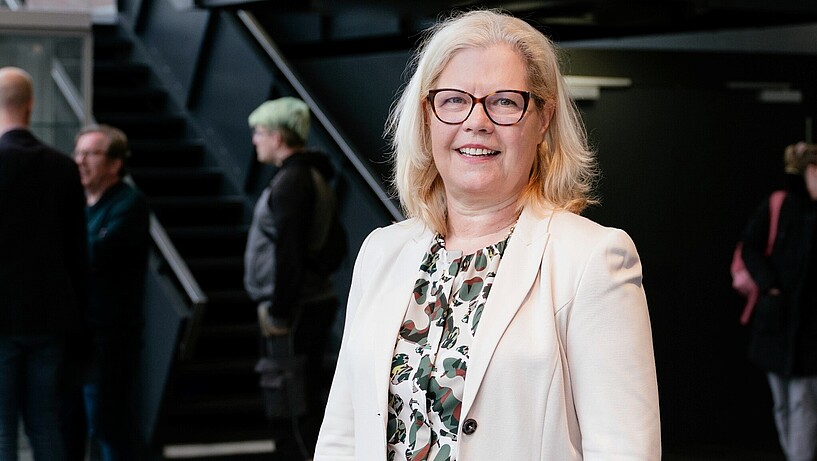With the passing of the torch on 28 April and your official entry into the position at the beginning of May, you've now taken over the office of your predecessor, Prof. Micha Teuscher. Prof. Lohrentz, which issues and tasks are on your agenda as president for the first few days and weeks?
My early days as president have been characterised by a fast pace. It feels as though I've gotten onto a fast-moving summer semester train on which I also have to get oriented at the same speed. At this fast pace, I'm having lots of meetings and in-depth conversations with university members and cooperation partners from academia, the City of Hamburg's administration, business and civil society which are helping to solidify my understanding of matters related to the university's development.
And what picture has emerged for you so far?
What is clear is the institutional impacts and the concerns of university members given the crises we've experienced, as well as the latter's expectations and wishes for the future stability and innovative development of HAW Hamburg. Even though as the former dean of the Faculty of Business and Social Sciences I already know many individual parts of the university well, there is still a lot to discover and absorb in a new way so that I have an overall picture.
At the meeting of the University Senate in March you introduced a strategy process for the university. Can you tell us about the central elements?
The strategy process is linked to many of the strategic ideas and considerations of university members, which they have developed particularly over the last two years as part of the 'A future without deficit' project. In recent weeks I've seen a great interest in being open to new values, innovative topics and more flexible structures. The creativity of these ideas has clearly shown me the university's potential and the desire for reorientation. We need to use these ideas and this impetus to design and develop a picture of what HAW Hamburg should look like in future.

